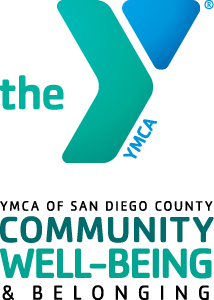By: Melissa Brooks
Kinship caregivers are a diverse group of individuals, but they are united in that they step in at a moments of crisis to care for children who have experienced traumatic events and can no longer be raised by their biological parent(s). Grandma D is one of these resilient Kinship caregivers.
Grandma D is a 67-year-old, single grandmother who lives in East County, San Diego, and recently stepped in to raise her 2-year-old grandson, Isaac, after he was removed from his biological mother’s care. Raising a grandchild comes with many challenges, but Grandma D was facing extra barriers. Not only had Isaac experienced trauma while in the care of his mother, but he also had several special medical needs, including a feeding tube, a hearing aid, and a small boot on one foot, that required him to go to several appointments at Rady Children’s Hospital every week. To make things even more challenging, Grandma D’s only vehicle had been impounded, so Grandma D and little Isaac were forced to ride the bus for two hours, each way, to get to and from appointments. At one point, Isaac was hospitalized, and Grandma D took the bus to the hospital to visit him every day.
When Grandma D connected with the YMCA Kinship Support Program, her Kinship Navigator knew that something had to be done to alleviate some of the challenges Grandma D faced daily. Grandma D’s Navigator helped her sign up for respite care to get a break from her caregiving responsibilities and helped her enroll in CalWORKs and CalFRESH to receive monthly financial assistance for food and other basic needs items. These resources were a great support for Grandma D and Isaac, but transportation was still a daily challenge. Luckily, Grandma D’s neighbor was willing to sell her a reliable, used car for just under $2,000. Grandma D used some savings to pay half of the cost, and the Kinship Support Program Emergency Funds covered the rest. Not only did a reliable method of transportation make it much easier for Grandma D to take Isaac to and from his appointments, but she was also able to take on more housekeeping jobs, which lead to more financial stability. Despite the challenges associated with caring for Isaac, Grandma D was completely committed to providing a safe, stable, and loving home for him. The services she received from the Kinship Support Program were able to make an incredibly difficult but important job a little easier.
Every day, the Kinship Support Program has the privilege of journeying alongside caregivers like Grandma D. Our Kinship Navigators work with hundreds of caregivers and their families, offering them the support they need to not only survive, but thrive. We offer a variety of services including case management, support groups, respite care, emergency funding, and family events. We provide resources and the tools they need to provide a safe, stable home for the children in their care. The vast majority of kinship caregivers are raising the children in their care for the very same reasons that children enter foster care, but they are doing it outside of the formal foster care system and often receive much less support than traditional foster parents. Without programs like YMCA Kinship Support Services, these caregivers would be left to navigate these difficult times alone. We are incredibly grateful to spend each day supporting such resilient, inspiring, caring individuals.
Melissa Brooks serves as the Program Director for the Youth and Family Services Kinship Support Program. She received her Master’s Degree in Social Work from San Diego State University and has been serving the community at YFS for 12 years. When Melissa isn’t supporting Kinship caregivers, she enjoys spending time with family and friends. During Covid-19, she has been practicing self-care by going to the beach.


